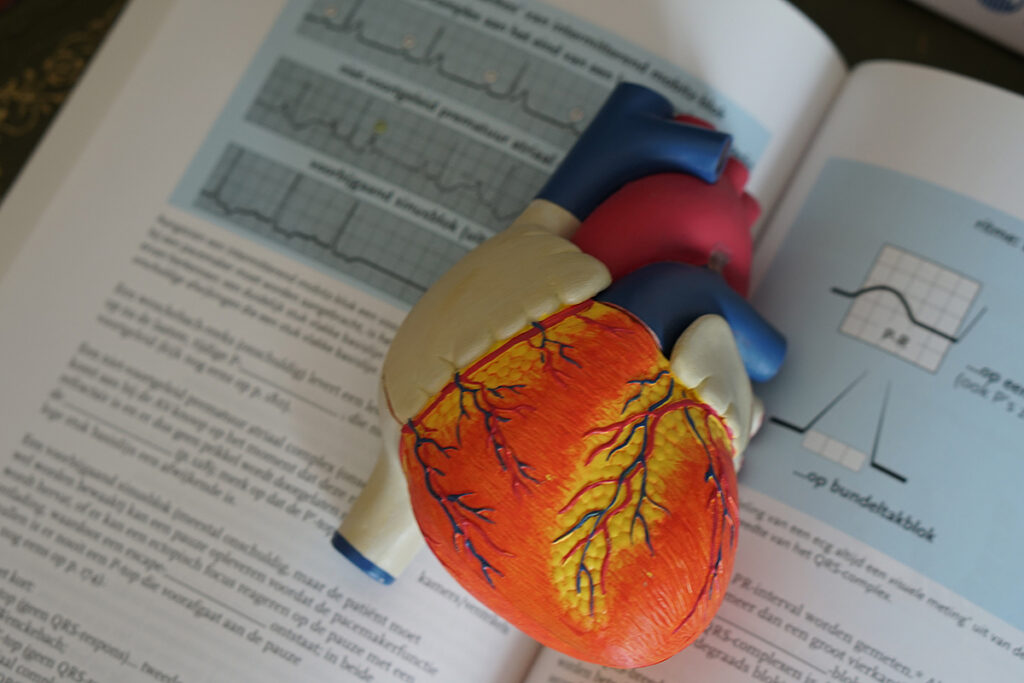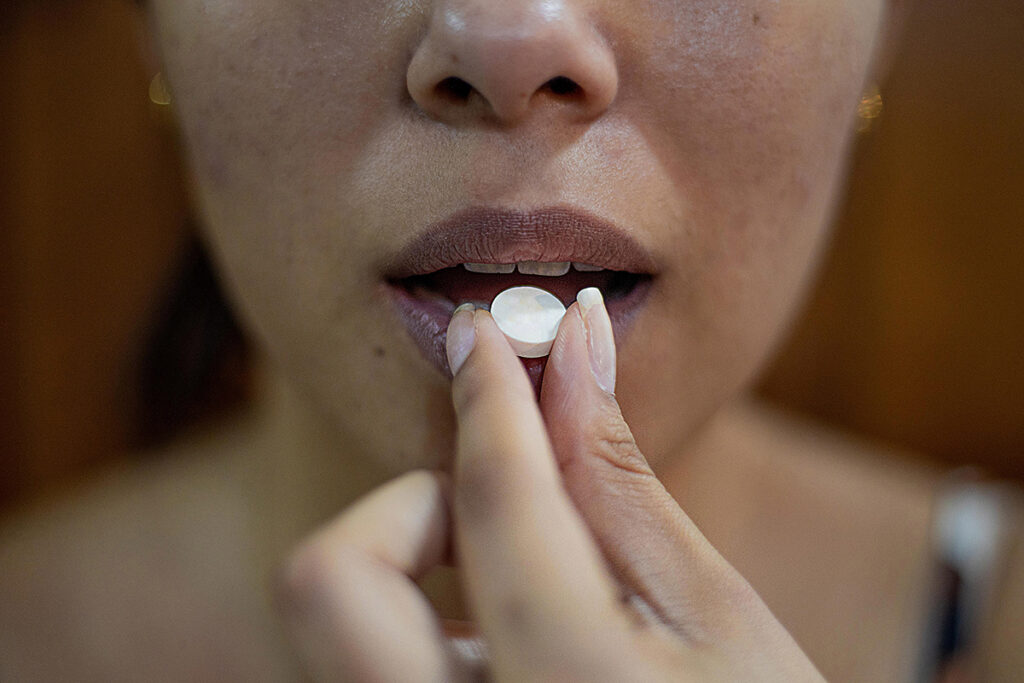There are not enough clinical trials to detect the rare side effects of COVID-19 vaccines. With more than 6.3 billion doses of coronavirus vaccines injected worldwide, identifying rare side effects is a top priority for scientists.
Rare side effects include heart inflammation (myocarditis or pericarditis) and cardiac arrhythmias. Inflammation of the heart occurs more often in adolescents and young adults, mainly after the second dose of the vaccine.
Vaccine side effect reports report heart inflammation facts:
- Pfizer – BioNTech and Moderna – 1,783 cases among people aged 12–29 years (USA, as of November 4, 2021).
- Pfizer – BioNTech – 145 cases of myocarditis and 138 cases of pericarditis out of 177 million vaccine doses (Europe, as of July 9, 2021).
- Moderna – 9 cases of myocarditis and 19 cases of pericarditis out of 20 million vaccine doses (Europe, as of July 9, 2021).
- Pfizer – BioNTech – 275 cases of myocarditis among more than 5 million vaccinated (Israel, December 2020 to May 2021).
Before scientists, the question arose: when is the risk of heart complications higher – after vaccination or after natural COVID-19?
A UK team analyzed vaccination data for 38,615,491 adults. Vaccines used:
- Pfizer – BioNTech – 16,993,389 people;
- Oxford – AstraZeneca – 20 615 911 people;
- Moderna – 1,006,191 people.
To investigate the link between vaccinations and myocarditis, pericarditis, or arrhythmias, scientists compared vaccination data with national data on deaths, hospitalizations, and incidences of SARS-CoV-2.
During the study period, there were 1,615 and 1,574 hospitalizations or deaths associated with myocarditis and pericarditis, respectively (14 patients had both) and 385,508 cases associated with cardiac arrhythmias.
Myocarditis
The risk of myocarditis increased 1-7 days after the first dose:
- Oxford – AstraZeneca – 1.76 times;
- Pfizer – BioNTech – 1.45 times;
- Moderna – 8.38 times.
The risk of myocarditis increased 1-7 days after the second dose:
- Pfizer – BioNTech – 1.75 times;
- Moderna – 23.10 times.
The risk of myocarditis increased after a positive test for SARS-CoV-2:
- after 1-7 days – 21.08 times;
- after 8-14 days – 11.29 times;
- after 15–21 days – by 5.36 times;
- after 21-28 days – 3.08 times.
Within 1 to 28 days after the first dose of vaccine, the risk of myocarditis increased:
- Oxford – AstraZeneca – 1.29 times;
- Pfizer – BioNTech – 1.31 times;
- Moderna – 2.97 times.
Within 1–28 days after the second dose of vaccine, the risk of myocarditis increased:
- Pfizer – BioNTech – 1.30 times;
- Moderna – 9.84 times.
The risk of myocarditis increased by 9.76 times within 1–28 days after testing positive for SARS-CoV-2.
Pericarditis
The risk of pericarditis decreased after the first dose of the vaccine:
- Oxford – AstraZeneca: after 1-7 days – 1.69 times, after 15-21 days – 1.56 times;
- Pfizer – BioNTech: after 8-14 days – 2.17 times.
22-28 days after the second dose of Oxford-AstraZeneca, the risk of pericarditis was reduced 2.04-fold.
There is insufficient data to assess the association of pericarditis with the Moderna vaccine by week.
A positive test for SARS-CoV-2 increased the risk of hospitalization or death from pericarditis:
- after 1-7 days – 4.85 times;
- after 8-14 days – 3.81 times.
Within 1–28 days after administering the first dose of Oxford-AstraZeneca, the risk of pericarditis was reduced by 1.35 times.
There was no association with Pfizer – BioNTech or Moderna vaccines.
The risk of pericarditis increased by 2.79 times within 1–28 days after testing positive for SARS-CoV-2.
Cardiac Arrhythmia
The risk of cardiac arrhythmias decreased after the first dose of the vaccine 1–7 days later and after that:
- Oxford – AstraZeneca – 1.05 times;
- Pfizer – BioNTech – 1.27 times.
The risk of cardiac arrhythmias decreased after the second dose of the vaccine:
- Oxford-AstraZeneca: after 1-7 days – 1.19 times, after 8-14 days – 1.03 times;
- Pfizer – BioNTech: after 1-7 days – by 1.18 times, after 8-15 days – by 1.05 times.
1-7 days after the second dose of Moderna, the risk of cardiac arrhythmias increased 1.93-fold.
A positive test for SARS-CoV-2 increased the risk of cardiac arrhythmias:
- after 1-7 days – 11.73 times;
- after 8-14 days – 6.57 times;
- after 15–21 days – 2.30 times;
- after 21-28 days – 1.67 times.
The risk of cardiac arrhythmias decreased within 1–28 days after vaccination:
- the first dose of Oxford-AstraZeneca – 1.06 times;
- the first dose of Pfizer – BioNTech – 1.12 times;
- the second dose of Oxford-AstraZeneca – 1.05 times;
- the second dose of Pfizer – BioNTech – 1.05 times.
The second dose of Moderna increased the risk of cardiac arrhythmias by 1.46-fold.
A positive test for SARS-CoV-2 increased the risk of cardiac arrhythmias by 5.35-fold.
Myocarditis Risk Dependence on Age and Gender
The increased risk of myocarditis associated with any messenger RNA vaccine is consistently seen in people younger than 40.
Under 40
The risk of myocarditis increased over 1–28 days:
- after the first dose of Pfizer – BioNTech – 1.83 times;
- after the first dose of Moderna – 3.89 times;
- after the second dose of Pfizer – BioNTech – 3.40 times;
- after the second dose of Moderna – 20.71 times.
A positive test for SARS-CoV-2 increased the risk of myocarditis by 4.06 times.
There was no association between the Oxford – AstraZeneca vaccine and the risk of myocarditis in people younger than 40 years old.
40 and older
The risk of myocarditis increased 1.33-fold within 1–28 days after the first dose of Oxford-AstraZeneca.
A positive test for SARS-CoV-2 increased the risk of myocarditis 12.18 times.
There was no association with the Pfizer – BioNTech vaccine. There is insufficient data to assess the association of myocarditis with the Moderna vaccine.
Women
In women, the risk of myocarditis increased over 1–28 days:
- after the first dose of Oxford-AstraZeneca – 1.40 times;
- after the first dose of Pfizer – BioNTech – 1.54 times.
A positive test for SARS-CoV-2 increased the risk of myocarditis by 11 times.
There are insufficient data to assess the association of myocarditis with the Moderna vaccine.
Men
In men, the risk of myocarditis increased over 1–28 days:
- after the first dose of Moderna – 3.79 times;
- after the second dose of Moderna – 12.27 times.
A positive test for SARS-CoV-2 increased the risk of myocarditis by 9.06 times.
No association was found with Oxford – AstraZeneca or Pfizer – BioNTech vaccines.
Risk of heart complications after vaccination and SARS-CoV-2 infection: absolute figures
Expected number of additional cases of myocarditis within 1–28 days after the first dose per 1 million vaccinated:
- Oxford – AstraZeneca – 2;
- Pfizer – BioNTech – 1;
- Moderna – 6.
Within 1–28 days of the second dose of Moderna, an additional 10 cases of myocarditis per million people can be expected. It compares to another 40 cases of myocarditis per 1 million within 1 to 28 days after testing positive for SARS-CoV-2.
The increased risk of myocarditis associated with mRNA vaccines was present only in those under 40. Expected cases per million people:
- the first dose of Pfizer – BioNTech – 2;
- the first dose of Moderna – 8;
- the second dose of Pfizer – BioNTech – 3;
- the second dose of Moderna – 15.
It compares to 10 additional cases of myocarditis after testing positive for SARS-CoV-2 in those under 40.
Conclusions
The risk of myocarditis increases within a week after receiving the first dose of both adenovirus (Oxford – AstraZeneca) and mRNA vaccines (Pfizer – BioNTech and Moderna). The risk is higher after the second dose of both mRNA vaccines.
There was no evidence of an increased risk of pericarditis or cardiac arrhythmias after vaccination, except for the second dose of the Moderna vaccine.
The risk of developing myocarditis after vaccination is higher in people under 40. The expected additional cases of myocarditis are 1 to 10 per million people within a month after vaccination.
SARS-CoV-2 increases the risk of myocarditis, pericarditis, and cardiac arrhythmias. The expected number of additional cases of myocarditis after a positive test for SARS-CoV-2 is 40 per million people in a month.
While myocarditis can be life-threatening, most vaccine-associated myocarditis events were mild and self-limiting. The observed risk of myocarditis is small and limited to the 7 days after vaccination – in contrast to the significant life-long risk after infection with SARS-CoV-2. Myocardial injury is prevalent in people hospitalized with SARS-CoV-2 infection and is associated with a higher risk of nosocomial death.
Vaccination against SARS-CoV-2 in adults is associated with a slight increase in the risk of myocarditis within a week after receiving the first dose of both adenovirus and mRNA vaccines and after the second dose of both mRNA vaccines. However, SARS-CoV-2 infection significantly increases the risk of hospitalization and death from myocarditis, pericarditis, or cardiac arrhythmias.
Useful article, necessary information? Share it!
Someone will also find it useful and necessary:



